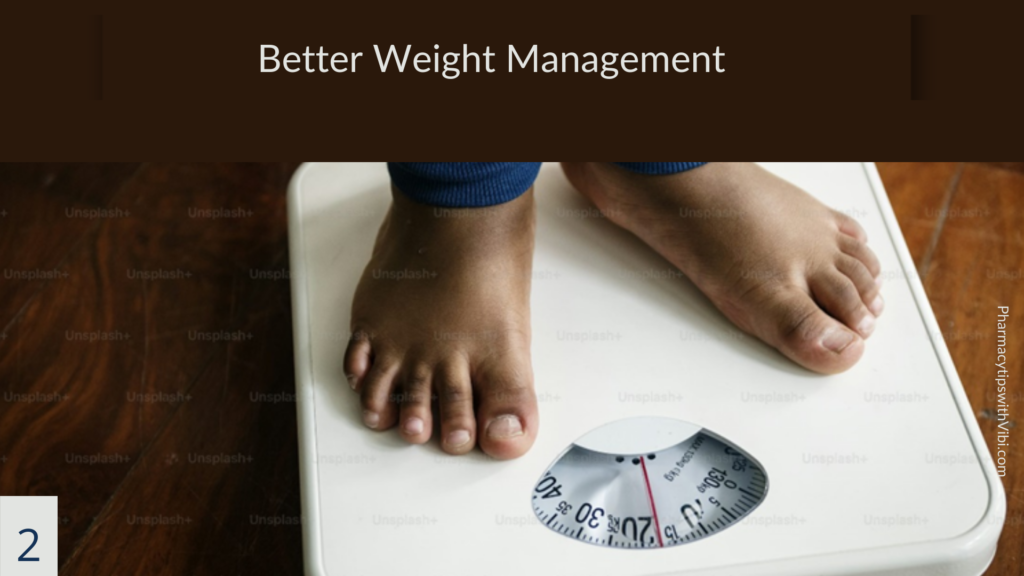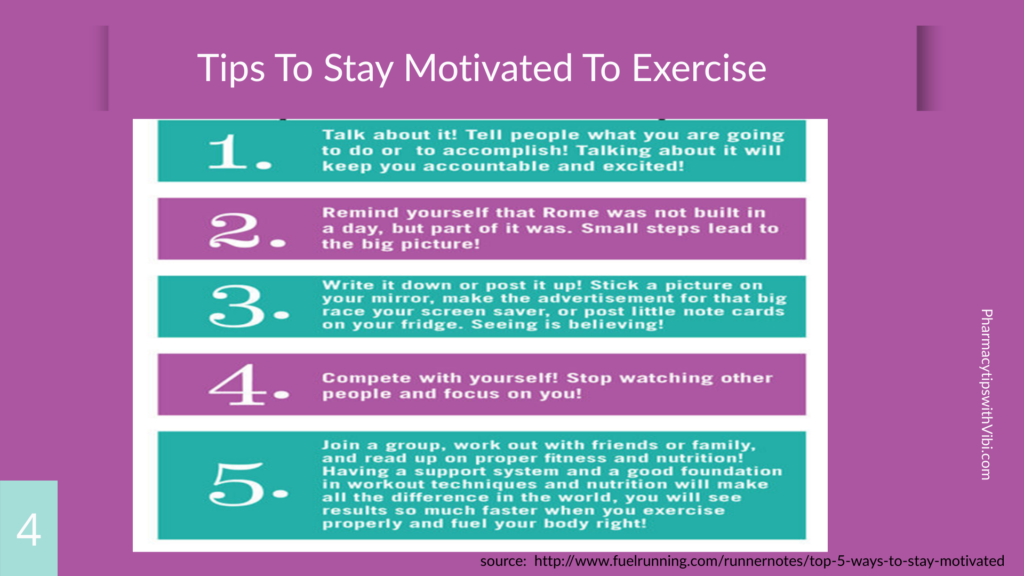Regular exercise is essential for maintaining overall health and well-being. In today’s world, where so many people lead sedentary lifestyles, including physical activity in your daily routine is paramount.
Regular exercise has several benefits, from improving cardiovascular function to boosting mental health. Incorporating physical activity into your daily routine can have a profound impact on your quality of life.
This informative article will discuss the numerous benefits of regular exercise and provide practical tips to help you establish a sustainable fitness regimen.
Physical activity refers to any bodily movement produced by skeletal muscles that requires energy expenditure. It includes all movement, whether during leisure time, for transport to and from places, or as part of a person’s work or domestic activities. Both moderate- and vigorous-intensity physical activity improve health. Popular ways to be active include walking, cycling, wheeling, sports, active recreation, and play.
Physical activity can be enjoyed by everyone at any skill level.
The Benefits Of Regular Exercise
The benefits of regular exercise are
1. Improves Cardiovascular Health

CVD is the leading cause of death globally, killing 17.9 million people in 2019, mostly from heart attack and stroke. 2
Engaging in aerobic activities, such as brisk walking, running, or swimming, can strengthen your heart and improve its efficiency in pumping blood throughout your body, thereby lowering the risk of these diseases. Additionally, regular exercise has been shown to lower blood pressure and improve cholesterol levels, further contributing to a healthier heart.
2. Increases Muscle Strength And Enhances Flexibility
Muscular strength is determined by how much force you can exert or how much weight you can lift. Building muscular strength uses heavier weights for fewer repetitions.
A strong body improves performance, aids in weight management, boosts mood and energy, enhances sleep quality, and builds confidence. It also promotes healthier muscles and bones, improves posture, relieves back pain, and increases stability and flexibility, reducing injury risk. 4
3. Better Weight Management

Both eating patterns and physical activity routines play critical roles in weight management. You can gain weight when you consume more calories than the amount of calories you burn. 3
Regular exercise helps burn calories, making it easier to maintain a healthy weight. With obesity rates soaring globally, incorporating exercise into daily routines can be a powerful tool in combating this epidemic
4. Reduces Risk Of Chronic Diseases
Regular physical activity can help individuals manage chronic conditions and disabilities. For instance, regular exercise can:
- Help support daily living activities and independence for people with disabilities. 3
- Reduce pain and improve function, mood, and quality of life for adults with arthritis.
- Regular exercise helps control blood sugar levels and lowers the risk of heart disease and nerve damage for people with type 2 diabetes.
5. Improves Mental Health And Mood
Endorphins are released by the body when it feels pain or stress, acting as natural painkillers to help you cope with discomfort. They block pain signals in the brain, allowing you to function even in challenging situations.
Engaging in activities that make you feel good like dancing, hiking and power walking, can increase endorphin release. One of the most effective ways to boost endorphins is through exercise, which can lead to feelings of euphoria, often referred to as a “runner’s high.” Other forms of physical activity can also stimulate endorphin production. 5
6. Better Quality Of Sleep

Regular exercise has been shown to improve the quality of sleep, which is essential for overall health and well-being. By engaging in physical activity, you can help regulate your body’s circadian cycle, making it easier to fall asleep. 6
Additionally, exercise can reduce stress and anxiety, which are common contributors to sleep disturbances. Improved sleep quality can have far-reaching benefits, including better cognitive function, enhanced mood, and increased energy levels during the day.
How often should you exercise?
The amount of exercise you need varies based on your fitness level, goals, the types of activities you choose, and any specific deficits in strength, flexibility, or balance. A general guideline is to aim for a minimum of 150 minutes of moderate-intensity aerobic activity (or 75 minutes of vigorous exercise) per week. To maximize benefits, consider increasing this as your fitness improves. You can break the 150 minutes into sessions that suit your lifestyle, such as 30 minutes five times a week or two 15-minute sessions daily. 7
This general rule varies based on age, health status, disabilities, and pregnancy.
Tips To Stay Motivated To Exercise
We sometimes lose the motivation to continue working out, often due to the soreness we experience after workouts, but more especially because of the unrealistic standards we set for ourselves due to the influence of social media. Here are ways you can stay motivated to exercise:
- Make Exercise Fun and Enjoyable: Choose activities you love, mix up your routine, and explore new exercises to keep things interesting.
- Set Realistic Goals: Break down your fitness goals into smaller, achievable milestones. Celebrate each achievement, no matter how small, to maintain motivation.
- Incorporate Exercise into Your Daily Routine: Integrate physical activity into daily tasks, break workouts into shorter sessions, and find convenient times to exercise.
- Make It Social: Engage friends, family, or coworkers in physical activities to boost motivation and make exercise more enjoyable.
- Track Your Progress: Monitor your activities and progress regularly, and reward yourself for achieving goals to reinforce positive behavior. 8
- Reward Yourself: After completing a workout or reaching a goal, treat yourself to something you enjoy. This creates positive reinforcement
- Stay Positive: Focus on the benefits of exercise, such as improved mood and energy levels, rather than focusing solely on physical results.
- Use Social Media Wisely: Follow accounts that promote body positivity and realistic fitness journeys. Unfollow those that make you feel pressured

In conclusion, the benefits of regular exercise extend far beyond physical fitness, encompassing mental and social well-being as well. Regular physical activity is a simple yet powerful tool for enhancing the quality of life, reducing the risk of chronic diseases, improving mental health, and fostering meaningful social connections. As the world continues to evolve, it is more important than ever to prioritize regular exercise as an essential component of a healthy, balanced lifestyle. By incorporating physical activity into our daily routines, we can take proactive steps toward a healthier, happier, and more fulfilling life.
Bibliographic References
- World Health Organization. “Physical Activity.” World Health Organization, World Health Organization, 26 June 2024, www.who.int/news-room/fact-sheets/detail/physical-activity.
- WHO. “Cardiovascular Diseases (CVDs).” Www.who.int, 11 June 2021, Staying Motivated to Exercise: Tips for Older Adults | National Institute on Aging (nih.gov)www.who.int/news-room/fact-sheets/detail/cardiovascular-diseases-(cvds)#:~:text=Cardiovascular%20diseases%20%28CVDs%29%20are%20the%20leading%20cause%20of.
- CDC. “Benefits of Physical Activity.” Physical Activity Basics, 10 May 2024, www.cdc.gov/physical-activity-basics/benefits/index.html#:~:text=Benefits%20of%20Physical%20Activity%201%20Immediate%20benefits%20By.
- Cronkleton, Emily. “Muscular Strength: Benefits, Exercises, and More.” Healthline, 31 Oct. 2019, www.healthline.com/health/exercise-fitness/muscular-strength#strength-vs-endurance.
- Cleveland Clinic. “Endorphins: What They Are and How to Boost Them.” Cleveland Clinic, Cleveland Clinic, 19 May 2022, my.clevelandclinic.org/health/body/23040-endorphins.
- Surles, Taneia. “5 Reasons Exercise Improves Sleep.” Healthline, 15 Mar. 2023, www.healthline.com/health/5-reasons-exercise-improves-sleep.
- Harvard Health. “Importance of Exercise: Benefits and Recommended Types – Harvard Health.” Harvard Health, www.health.harvard.edu/topics/exercise-and-fitness.
- “Staying Motivated to Exercise: Tips for Older Adults.” National Institute on Aging, 3 Apr. 2020, www.nia.nih.gov/health/exercise-and-physical-activity/staying-motivated-exercise-tips-older-adults.
